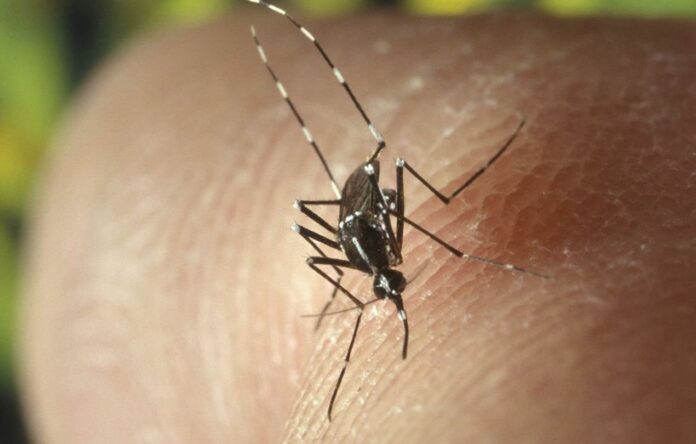A group of researchers led by Weill Cornell Medicine, NewYork-Presbyterian, and National Institutes of Health (NIH) investigators has discovered an unusual type of antibody that, even at extremely low concentrations, neutralizes the Zika virus and renders the virus infection undetectable in preclinical models.
This finding holds promise for the development of medicines to protect unborn children from Zika, which can cause severe birth abnormalities if transferred from a pregnant mother to her unborn child.
In a study published today in Cell, researchers used blood cells from pregnant women who had Zika to isolate an ultrapotent immunoglobulin M (IgM) antibody, which is a five-armed immune protein that sticks to the virus. In tests with mice, they found that the antibody not only kept the animals from getting infections that would have killed them, but also slowed down the virus so much that it couldn’t be found in their blood.
Zika is swirling at low levels in many tropical countries, but that will change, says co-author Dr. Sallie Permar.
“The important thing,”according to Dr. Permar, “is that we’ve got to be ready for another outbreak of Zika.”
There are currently no therapies or vaccines that can be recommended by doctors. Dr. Permar believes that this antibody has the potential to close that gap with additional study. There are two possible applications for it: either as a preventative measure given to persons at risk of catching the virus during an outbreak, or to rapidly lower levels of Zika in the blood of pregnant people who have contracted the infection.
The Zika virus is spread by infected Aedes aegypti mosquitoes and usually gives adults a mild illness. However, infection with the Zika virus during pregnancy can result in serious birth defects, such as unusually small heads and brain damage in the offspring.
During a Zika outbreak that started in 2015, researchers in Brazil led by co-authors Dr. Reynaldo Dietze, collected blood samples from pregnant people who had the virus. Because they believed these patients may have antibodies that could prevent the congenital infection, the team chose to concentrate on women who had contracted Zika but had given birth to babies who appeared healthy.
One of these individuals gave birth to an infant who appeared to be healthy despite having Zika in their blood for an exceptionally long time—nearly two months. The lab teams, led by first author Dr. Tulika Singh, identified that their B cells made an IgM antibody that stopped viral particles from getting into cells very well.
The researchers were surprised to find out that this antibody, called DH1017.IgM, is a type of antibody that is usually weaker and less mature and is made early in an infection. But in this instance, the antibody’s powerful action was dependent upon it being an IgM antibody. When the researchers looked at its molecular structure as it bound to the virus, they found that more than one arm could attach to a viral particle at the same time. According to the results, IgM antibodies may be particularly effective at defending against the Zika virus and maybe other viruses.
The researchers intend to start evaluating the antibody’s safety and how well it can stop transmission to a fetus in different preclinical models in order to develop it into a therapeutic. Dr. Permar pointed out that pregnant women were not included in the COVID-19 vaccine trials. He said that pregnant women must be included in any human studies that look for new ways to prevent or treat Zika.
“Pregnant people are the exact population that needs vaccines or immunotherapies for Zika,” she added. “It’s crucial to get anti-Zika vaccines and therapies that are safe in pregnancy rolled out as soon as there is evidence of an outbreak.”
Source: Cell
